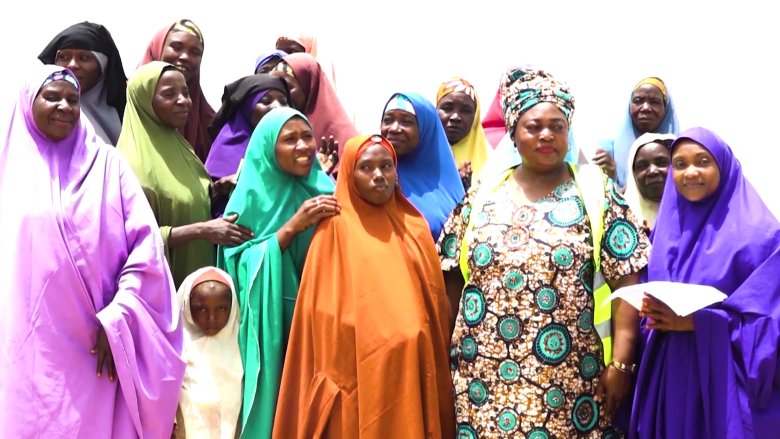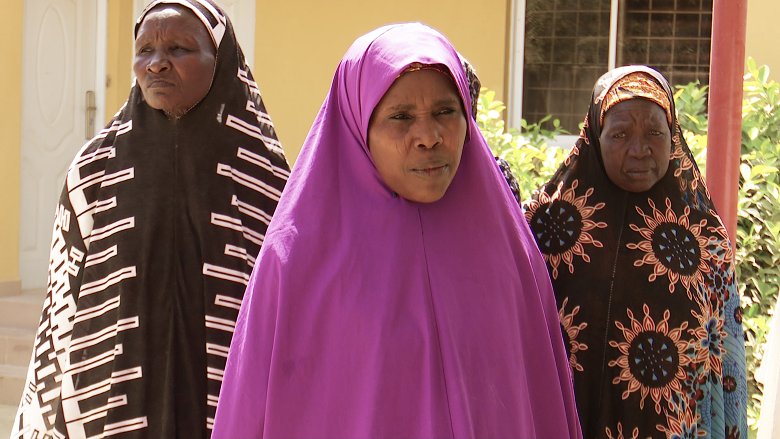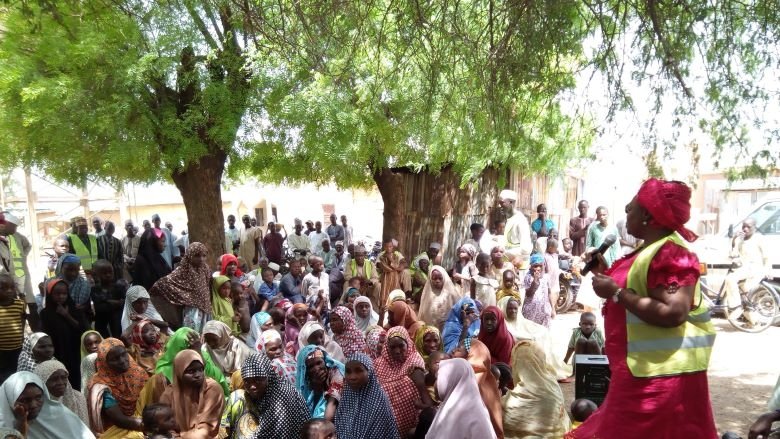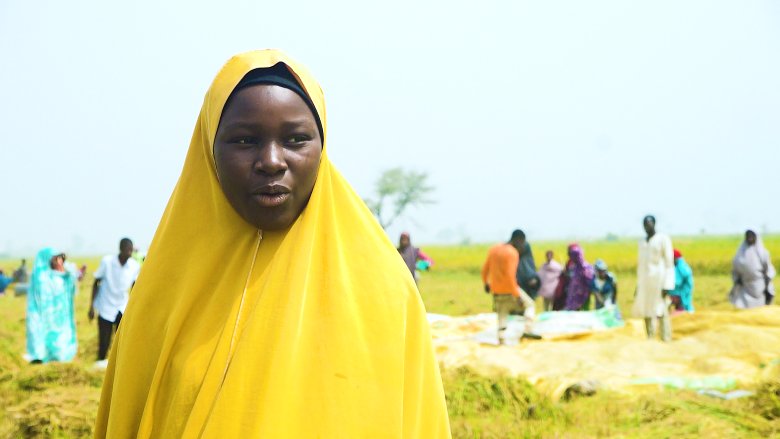With over 220 million people, Nigeria is the most populated country in Africa and the sixth most populated in the world. The country’s extreme poverty rates - approximately 46% of the country lives below the national poverty line of $2.15 per person per day – have severely impacted access to education and employment, particularly for females and marginalized groups. In Northern Nigeria alone, more than 48% of girls are not attending school.
And while the country has low unemployment rates, the National Bureau of Statistics (NBS) recently reported unemployment rates of 5.3%in 2022 and 4.1% in early 2023 (Nigeria Labour Force Survey (NLFS), 2023) – underemployment and work in subsistence agriculture have trapped many in a cycle of poverty.
Women farmers in Northern Nigeria were struggling with poor farming methods resulting in low yields. This was exacerbated by irrigation infrastructure in dire need of rehabilitation.
"Before, we used to experience a lot of hardships," says Baballiye Muhammad, one of the farmers at the Hadejia Valley Irrigation Scheme in Jigawa State, Nigeria.
Increasing the competitiveness and productivity of Nigeria’s agricultural sector and raising incomes sustainably for the large share of the labor force working in agriculture will have an immediate impact on reducing the number of people living below the poverty line. The Federal Government of Nigeria, with financing from the World Bank, launched the Transforming Irrigation Management in Nigeria (TRIMING) Program. The program aims to achieve its transforming impact through the modernization of irrigation systems, improved water resources management, and assistance to women and men farmers in Northern Nigeria. TRIMING is contributing to Nigeria’s efforts in tackling poverty, food insecurity, and gender inequality.
Through this project, Nigeria has rehabilitated irrigation infrastructures, expanded 30,000 hectares (ha) in five intervention schemes and reached 930,000 beneficiaries, of which, 45-50% are women. Among the completed schemes are the 5,750ha in Hadejia Valley Irrigation Scheme Jigawa State, and 14,444ha in Kano River Irrigation Scheme Kano State.
The renovations have increased access to water for agriculture which has in turn bolstered women’s economic empowerment. The women who received support through the program are now fully engaged in irrigation farming, with an increase in crop yields of up to 60 percent. Participants are also more financially independent and contribute to household incomes.
“The availability of water is making it possible for women to participate in farming. We have plenty of women farmers in Argina village who are getting good yields and profits from farming.” Says Hajjala Adullahi, a farmer at Argina village in Jigawa State.
Amina Salisu Tasiu, from Kura, Kano State, is another farmer benefitting from this development. Before participating in the TRIMING Program, she struggled with poor crop yields. The irrigation infrastructure she was using was old and dilapidated, and she lacked access to modern irrigation farming techniques. As her income dwindled, she could no longer afford tuition fees for the local school and her daughter, Rabi’atu, was forced to drop out.
Around the world, women farmers like Amina have struggled to overcome the gender productivity gap. While women make up almost half of the global agricultural workforce, they consistently have less access to technologies, information, resources, and finance for their activities.
Through the intervention of the TRIMING program, Amina is one of the 20,000 women who are benefitting from the Kano River Irrigation Scheme , which rehabilitated local dams and irrigation infrastructure to improve water supply and water resource management. TRIMING implemented a Business School and Farmer Field Schools, where Amina was trained in modern farming techniques. She also received farming input, including fertilizer and seeds and implements. The support provided through the program helped Amina increase her crop yields by more than 60%and improve her income and livelihood. Today, her daughter Rabi’atu Salisu Tasiu is back in school.
“The profits from my mother’s farm helped pay for my school fees. I was able to pass my exams and now want to go for higher education,” adds Rabiatu.
The Program takes a comprehensive approach of increasing farm productivity, building climate resilience, reducing flooding risks while improving the lives and well-being of millions of Nigerians. Due to various cultural barriers and outdated irrigation facilities, women like Rabiatu Bello could not participate in irrigated farming activities. The TRIMING Program encouraged women’s participation in farmer field and business schools, where farmers were taught modern farming techniques, business, and marketing. After training in the business school, Rabi joined Da Rarrafe Women Farmer Fields and Business Group in Zamfara State in Northern Nigeria. She has acquired knowledge of modern irrigation farming techniques and is now farming.
"The Triming Program has taught us modern farming technics which has helped increase my income from farming. I used the proceeds to buy a machine which helps me make more money from the farm," Says Rabiatu.
The Program also created about 839 Water User Associations (WUAs), training and behavioral change programs, mobilization of youth as agents of change in the farming communities across all TRIMING intervention schemes.
This support has strengthened Nigeria’s efforts around integrated water resources management planning, improved dam operations and safety, agricultural productivity and market linkages, innovations including research and development.
The rehabilitation and modernization of irrigation infrastructure under the TRIMING Program is transforming communities in Northern Nigeria. Improving access to water, even in times of severe drought. This is helping to ensure food security and economic stability. The inclusion of women has been equally transformative. When women like Amina and Rabiatu receive the same access to irrigation technologies, training, and inputs as men, agricultural production increases and nutrition improves, resulting in healthier, more resilient communities.



